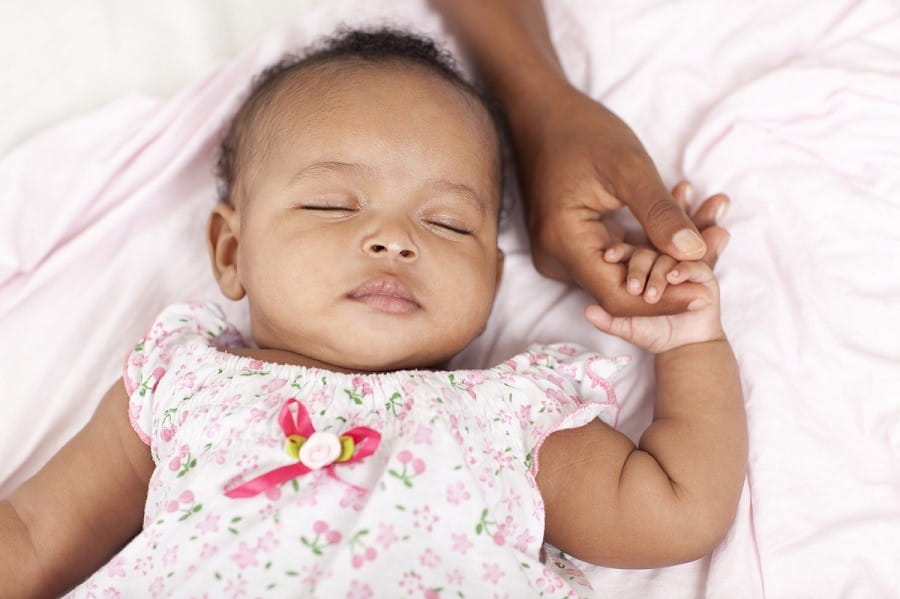Big Sister, Little Brother! 14 Tips to Prepare Older Siblings for a Baby

“My mommy has a baby in her tummy, and I’m going to be a big sister!” proclaims little Lily, followed by a big smooch planted on Mama’s belly. Yup, it’s downright heart-melting, but it’s just one of many emotional responses your child may have as the soon-to-be older sibling prepares for the baby on the way.
Babies bring big changes to all our lives: It’s natural for an older child to feel a range of emotions, from pride and excitement to jealousy and sadness, as they get to know their new sibling.
Don’t worry, we’ve got some tried-and-true actions that can help the new big brother or sister in your house understand what to expect and give them time to adjust to a new sibling relationship. With a little planning and some extra care, we hope that your growing family will soon be happily humming along together (most of the time, anyway).
Everyone Belongs In Our Circle
At KinderCare, we’re committed to building warm, welcoming and supportive classrooms for children of all abilities, backgrounds and experiences.
Find a center near you1. Give Older Siblings a Starring Role in Your Growing Family
Older children are part of the story of your growing family. When you talk about your new baby, make sure big brother and big sister are part of the story you share with others. Tell your child about the pregnancy when you tell your friends—you want to make sure they hear about it from you!
2. Listen to the Baby’s Heartbeat—Together
If your older child shows interest—and you’re able—bring them along to a few prenatal visits. This can be a great first step in introducing your toddler to the second baby. Hearing baby’s heartbeat or seeing them on an ultrasound can make the new baby’s arrival feel more real—and fun!
3. Prepare Your Toddler for a New Baby by Making Them Feel Special
Make the big sibling feel as special as they really are. Talk often (and proudly) with them about their upcoming role as big brother or sister. Refer to the new baby as “your little sister (or brother)” to help them feel included.
4. Read All about Babies Together
There are lots of great books about pregnancy, babies, and siblings that help your child understand what’s coming. We recommend:
- Rachel Fuller’s series of four board books (Waiting for Baby, My New Baby, You and Me, Look at Me!)
- Joanna Cole’s I’m a Big Sister and I’m a Big Brother
- The New Baby by Mercer Mayer
- Laura Numeroff’s What Sisters Do Best and What Brothers Do Best
- David McPhail’s Sisters and Brothers
5. Share Your Older Sibling’s Baby Stories with Them
Tell them stories about what they were like as a baby—looking at pictures and videos from that period can also help them understand that the new baby will need some time before they become a real playmate. Which leads us to our next point...
6. Be Honest about What Babies Can (and Can’t) Do
Depending on the age of the older child, they may be surprised to find out that babies aren’t instant, awesome playmates. This is especially true for toddlers, who are at just beginning to learn everything about the world and will need a little coaching about baby do’s and don’ts.
7. Help Your Toddler Practice Being Gentle
Give your child a toy baby that they can practice caring for. Show them how to hold the doll in a safe and gentle manner. Visit friends with younger babies, if possible.
A Lifetime Of Confidence Starts Here
Our teachers help every child build the confidence they need to try new things and explore the world around them.
Search for a center near you8. Include Your Older Child in the Baby Preparations
This can be anything from making a picture to frame for the baby’s wall, to helping stack diapers, to picking the baby’s coming-home outfit. As your due date draws near, make sure that your older child knows what they will be doing during, and right after, the birth. Is Grandma coming to stay? Will they spend the night with the neighbors? Explaining the plan will keep them from feeling frightened or confused when the time comes.
9. Ask about Their Feelings—and Take Them Seriously
There is no right way or wrong way to feel about a new baby’s arrival: Some might feel excited and curious about a new little brother, others might feel upset, and some may lavish endless amounts of loving attention on the new baby.
Your child’s emotional response also might change after the baby arrives—in fact, their feelings can change by the day or even the hour. Validate their feelings and help them to describe them in words: angry, excited, curious, lonely, or happy.

10. Give Older Siblings Some Extra TLC
Sometimes an older child needs a little extra nurturing—heck, sometimes we all do—so go ahead and give it. Every child expresses their needs uniquely: Baby talk, asking for a bottle, or other “baby-ish” behaviors might be ways for your child to ask for some of the tender attention that you’re giving to their little sis. Reassure your older child as often as they need it: Give them a squeeze, tell them that you love them very much, that they are just as special, and that you will still do fun things together.
11. Include Older Siblings in the Celebrations
When family and friends come to visit the new baby, kindly ask them to give some attention to the older child as well. Have some small gifts on hand for big brother or big sister in case guests only bring presents for the baby.

12. Let Big Brother/Sister Help Care for Your New Baby
Invite the big brother or sister to help you care for the baby with a few “big-kid jobs,” like getting baby’s socks from upstairs or a diaper from the shelf—celebrating the many things older siblings can do now will help them feel more secure about their important place in the family. Tell them how proud you are!
13. Stick to Routines (as Much as Possible)
Maintaining bedtime rituals, school schedules, and breakfast bonding time will help big siblings feel confident and grounded as so much is changing in their lives.
14. Set Aside Special Time for Older Siblings
Make sure each parent gets at least 15 minutes of one-on-one time with the older child each day. We know this can feel really challenging during the first few months with a new baby, but time together doesn’t need to be fancy to be special: Reading books in a basement fort might be exactly what big brother needs. When you can, try scheduling a few special one-on-one dates—like going to a play gym or out for a big-kid treat—that you and your older child can look forward to together!




